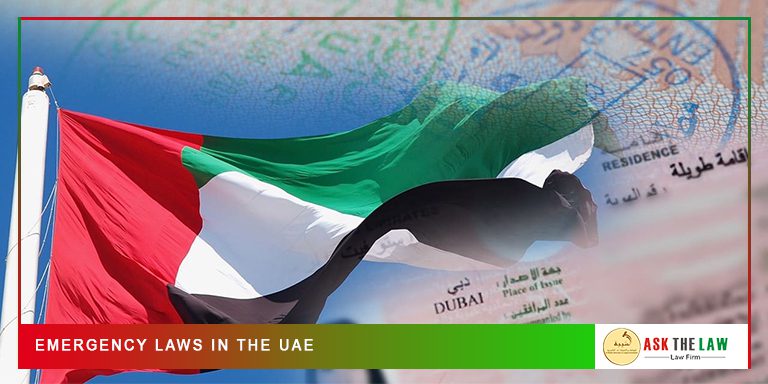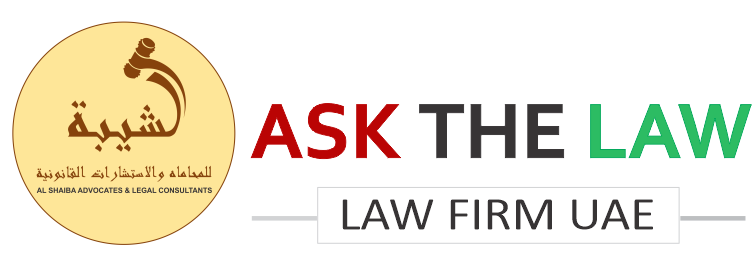
Emergency Laws in the UAE
UAE is a well-known country in the world, which has stringent laws and regulations to ensure public safety for everyone. Similarly, in urgency there is a need for a strong legal framework to combat the emergency like situation. They may be a direct result of a natural calamity, pandemics, civil emergencies or natural disaster.
Legal System of Emirates
The legal system of Emirates allows it to stand out from others in the region. There has been an increase in global uncertainties and thus, there is an urge for a comprehensive emergency law to govern such turbulent situations. The COVID-19 pandemic is an example. It is pivotal for the safety of citizens, residents, and visitors of the UAE. Additionally, it is equally essential for expatriates, foreign investors, and businesses operating. This has surged immediate action by the UAE government to take quick actions and decisions to preserve the fundamental rights of every individual in the UAE.
Prime or Core Objective
The prime or core objective of a proper legal infrastructure is to ensure public protection. Furthermore, it also assists in maintaining the law-and-order situation within the country at all times. A cohesive and systematic legal framework is the backbone of the efficient handling of crisis-like situations. This helps the government to respond promptly and effectively to natural disasters or emergency scenarios.
Emergency Laws: Regulating Public Behaviors
Emergency laws in the UAE help in regulating the public behaviors which results in quick government recourse. It enables the UAE government to take expedited actions to battle the situation. The role of NCEMA in emergency situations:
A Dedicated Federal Law
Federal Law No. 2 of 2011 is dedicated to combating emergency-like situations in the Emirates. Federal law is named Emergency, Crisis, and Disaster Management and is a cornerstone regulation taken by the UAE government to battle emergency situations.
NCEMA
UAE emergency laws help in managing the vast range of emergencies. Crisis, and natural calamities. The regulation outlines the responsibilities and role of the National Emergency Crisis and Disaster Management Authority (NCEMA).
The National Emergency Crisis and Disaster Management Authority (NCEMA) is a regulatory body of the UAE. They serve as the central body that ensures coordination, responses, collective efforts, and appropriate actions.
Implementation of Precautionary Measures
Emergency law in the UAE assists the government in implementing precautionary measures. They have the power to give orders regarding quarantine isolation, restrictions on movement, temporary closures of public spaces, and much more.
National Emergency Crisis and Disaster Management Authority (NCEMA) have played a crucial role during the COVID-19 pandemic.
They have been active during times of national emergencies. Furthermore, they have worked closely with the other authorities to serve the purpose.
Collaboration with Interior MOI
During the pandemic, they worked hand in hand with the Ministry of Interior MOI, the Ministry of Health, and other relevant agencies of the UAE. They coordinated and jointly made efforts and national response.
Curfews
Under UAE emergency laws, the government has the full power to impose curfews, and restrictions, and navigate the movements inside and outside the country. The government of UAE often takes such measures to ensure public safety.
- The measures are taken with the support of federal laws of the land. In COVID-19 pandemic, the UAE government imposed many adhoc curfews and restrictions. They were conducted along with disinfected drives to make public places safer.
Action against Individuals
According to the UAE emergency laws, strict action is taken against the individuals who are violating the curfews and restrictions. As a result, there is an imposition of heavy fines and jail sentences, and in serious cases, it may lead to deportation.
Ways to handle emergencies in UAE
In a national crisis, it is important to manage the information. A UAE cybercrime law offers provisions to address the dissemination of information.
Federal law no 34 of 2021 includes the provisions and clauses to combat the spreading of false information in emergencies and crises.
According to the UAE Cybercrime Law, those individuals who are involved in spreading misinformation using various social media platforms will face penalties. It may result in hefty fines, imprisonment, and in severe cases both. Authorities in the UAE are allowed to take swift action to prevent panic, misinformation, or threats.
It is essential for the larger interest of the public and to ensure public order is followed. Additionally, the law empowers the public prosecution in spreading fake news or incitement during crises or emergencies.
Zero Tolerance Policy
UAE takes a strict stance on public safety and thus adheres to a zero-tolerance policy. In the UAE, the legal proceedings for such crimes are usually fast-tracked. The accusers are punished for their actions.
Special powers and rights of UAE Government
UAE emergency law grants special powers to the UAE government and other powerful authorities to create a balance in public safety and civil liberties.
Individual Rights: Safeguarded
The UAE constitution also emphasizes individual rights being safeguarded. During crises, restrictions, and curfews are imposed for the welfare of the general public.
Where individuals or businesses feel that their rights are affected in emergencies they can seek legal recourse. Individuals and businesses are free to challenge the penalties, punishments, wrongful detentions, or any abuse of emergency powers in UAE courts.
Under the constitution of the UAE, the fundamental rights of individuals are safeguarded. Further, it is also ensured that justice is served.
The detailed legal structure for emergency and crisis situations is a reflection of the UAE’s commitment to public well-being.
This underscores a dedication towards public resilience and safety for all. Authorities are empowered in the UAE to ensure swift and prompt actions to maintain effective recourse to emerging situations. It assists in maintaining a balanced response to crises that ensures transparency.
UAE has set a prime example of successfully handling the emerging situations in the country. The UAE government and other authorities play a pivotal role with the help of these citizens.
UAE has emerged as the global model for upholding justice during emergencies. It reflects the UAE’s preparedness and rapid response which can allow them to be at the forefront.
Legal Framework for Emergencies and Pandemics in UAE:
The UAE has been vigilant and thus introduced laws concerning health emergencies. Federal law no 14 of 2014 outlines the state authority during emergencies or pandemics. Federal law allows the UAE government to take necessary measures.
It highlights the need for compulsory testing, mandatory vaccinations, orders of isolation and quarantine, restrictions on travel, restrictions on public gatherings, and much more.
Furthermore, the law outlines the penalties and punishments for the violators.
Nonetheless, the UAE government also handles the economy and ensures commercial activity during crises and emergencies. It ensures economic resilience and also paves the way for business continuity.
The Central Bank of UAE and the Ministry of Economy play a critical role. They may issue orders and regulations that impact banking operations, rent regulations, loan repayments, and employment policies.
The core focus is to provide relief during a predicament. Besides, it often eases the financial burden on businesses and individuals during emergencies.
UAE criminal law imposes stringent penalties on violators. Any action that impacts public safety will result in strict legal consequences in emergencies. This leads to individuals being accountable for their actions that caused panic, riots, or any disobey of government orders.


